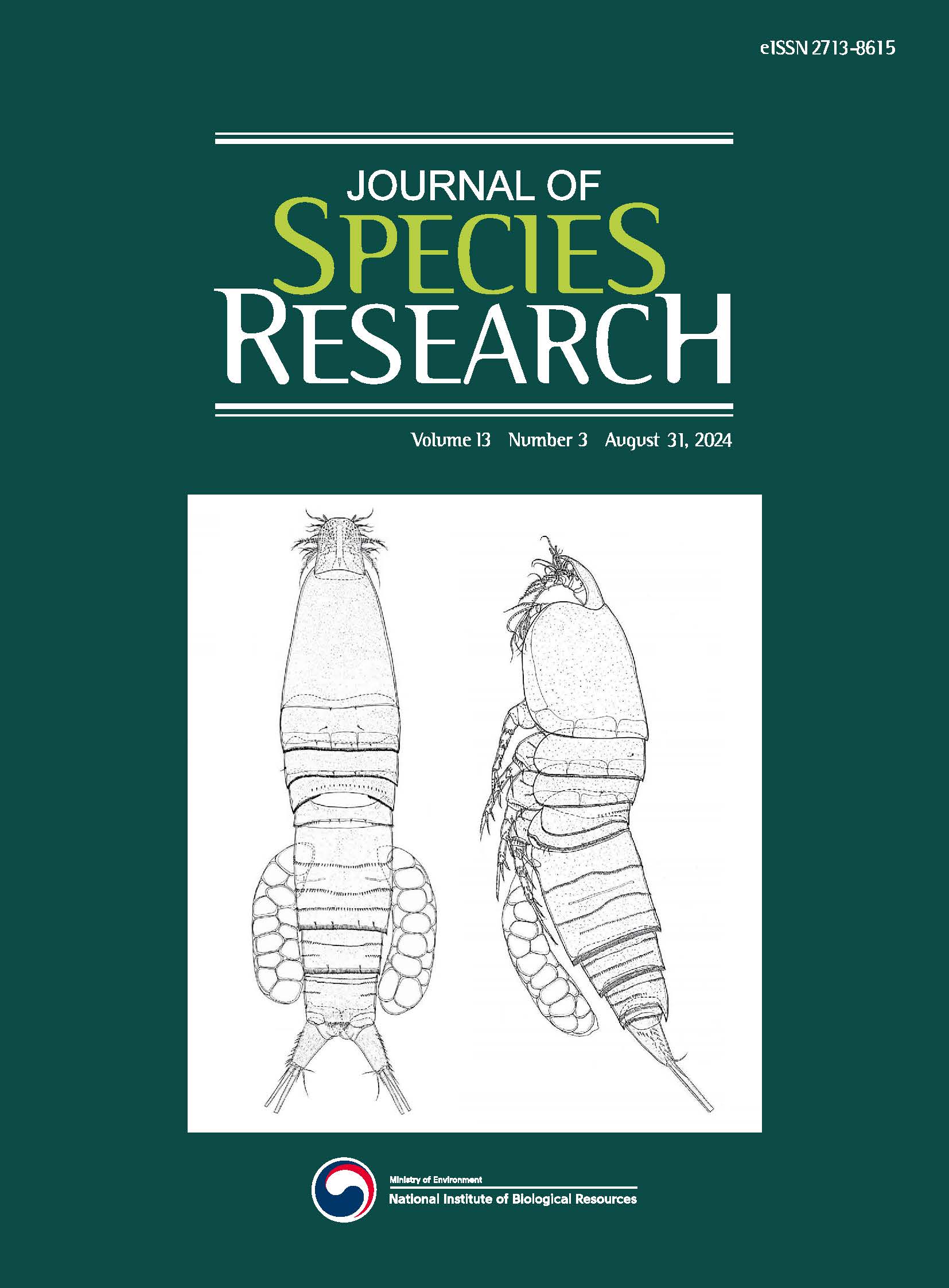- ENGLISH
- E-ISSN2713-8615
- KCI
A report of 35 unrecorded bacterial species belonging to the classes Alphaproteobacteria and Betaproteobacteria in Korea
윤정훈 (성균관대학교)
조기성 (한국외국어대학교)
성치남 (순천대학교)
김원용 (중앙대학교)
임완택 (한경대학교)
김명겸 (서울여자대학교)
차창준 (중앙대학교)
김승범 (충남대학교)
전체옥 (중앙대학교)
Abstract
During a comprehensive investigation of indigenous prokaryotic species in Korea, 25 and 10 bacterial strains assigned to the classes Alphaproteobacteria and Betaproteobacteria, respectively, were isolated from diverse environmental habitats, including soil, mud, tidal field, sea water, sand, rusted iron, and leaf. Based on their high 16S rRNA gene sequence similarities (>98.7%) and the formation of robust phylogenetic clades with type species, each strain was assigned to an independent and predefined bacterial species. Since there were no published or official reports regarding these 35 isolates in Korea, they - 25 species of 14 families in the 5 orders of Alphaproteobacteria and 10 species of 3 families in the two orders of Betaproteobacteria - have been reported as unrecorded species in Korea. In addition, Gram reaction, colony and cell morphology, basic biochemical characteristic, isolation source, and strain ID of each species are also described in the species description sections.
- keywords
- Alphaproteobacteria, Betaproteobacteria, unrecorded species, bacterial diversity, 16S rRNA, taxonomy, indigenous prokaryotic species in Korea
참고문헌
Harbison, A.B., L.E. Price, M.D. Flythe and S.L. Bräuer. 2017. Micropepsis pineolensis gen. nov., sp. nov., a mildly aci-dophilic Alphaproteobacterium isolated from a poor fen, and proposal of Micropepsaceae fam. nov. within Micro-pepsales ord. nov. International Journal of Systematic and Evolutionary Microbiology 67:839-844.
Kumar, S., G. Stecher and K. Tamura. 2016. MEGA7: mole-cular evolutionary genetics analysis version 7.0 for bigger datasets. Molecular Biology and Evolution 33:1870-1874.
Lee, H.J., S.E. Jeong, M.S. Cho, S.H. Kim, S.S. Lee, B.H. Lee and C.O. Jeon. 2014. Flavihumibacter solisilvae sp. nov., isolated from forest soil. International Journal of System-atic and Evolutionary Microbiology 64:2897-2901.
Nakai, R., M. Nishijima, N. Tazato, Y. Handa, F. Karray, S. Sayadi, H. Isoda and T. Naganuma. 2014. Oligoflexus tunisiensis gen. nov., sp. nov., a Gram-negative, aerobic, filamentous bacterium of a novel proteobacterial lineage, and description of Oligoflexaceae fam. nov., Oligoflexales ord. nov. and Oligoflexia classis nov. International Journal of Systematic and Evolutionary Microbiology 64:3353- 3359.
Sun, C., L. Xu, X.Y. Yu, Z. Zhao, Y.H. Wu, A. Oren, C.S. Wang and X.W. Xu. 2018. Minwuia thermotolerans gen. nov., sp. nov., a marine bacterium forming a deep branch in the Alphaproteobacteria, and proposal of Minwuiaceae fam. nov. and Minwuiales ord. nov. International Journal of Systematic and Evolutionary Microbiology 68:3856- 3862.
Thompson, J.D., T.J. Gibson, F. Plewniak, F. Jeanmougin and D.G. Higgins. 1997. The Clustal_X windows inter-face: flexible strategies for multiple sequence alignment aided by quality analysis tools. Nucleic Acids Research 25:4876-4882.
Williams, K.P. and D.P. Kelly. 2013. Proposal for a new class within the phylum Proteobacteria, Acidithiobacillia classis nov., with the type order Acidithiobacillales, and emended description of the class Gammaproteobacteria. Internatio-nal Journal of Systematic and Evolutionary Microbiology 63:2901-2906.
Yoon, S.H., S.M. Ha, S. Kwon, J. Lim, Y. Kim, H. Seo and J. Chun. 2017. Introducing EzBioCloud: A taxonomically united database of 16S rRNA and whole genome assem-blies. International Journal of Systematic and Evolutionary Microbiology 67:1613-1617.
- 다운로드 수
- 조회수
- 0KCI 피인용수
- 0WOS 피인용수


